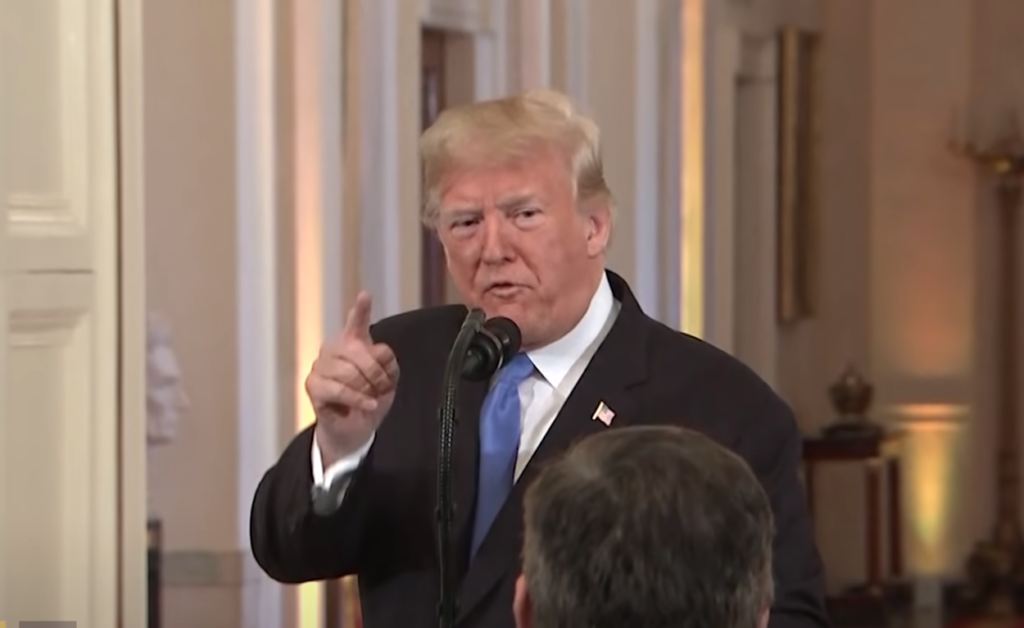Media’s Russiagate Self-Mutilation

A former newspaper colleague of mine, now retired from daily journalism, sends me this eye-popping piece in Columbia Journalism Review, written by Pulitzer Prize-winning former New York Times investigative reporter Jeff Gerth. Gerth is a legend among investigative journalists. It's a monumental takedown of the way the media covered President Donald Trump. My old colleague writes, "It's going to cause a shitstorm in the world of journalism. Exploring this topic is like lancing a boil. Painful, but necessary."
Gerth spent two years interviewing everybody he could on the Russiagate story, trying to figure out what the media did right, and what it did wrong. One thing indisputable: Russiagate hurt the media badly. Gerth writes:
Before the 2016 election, most Americans trusted the traditional media and the trend was positive, according to the Edelman Trust Barometer. The phrase “fake news” was limited to a few reporters and a newly organized social media watchdog. The idea that the media were “enemies of the American people” was voiced only once, just before the election on an obscure podcast, and not by Trump, according to a Nexis search.
Today, the US media has the lowest credibility—26 percent—among forty-six nations, according to a 2022 study by the Reuters Institute for the Study of Journalism. In 2021, 83 percent of Americans saw “fake news” as a “problem,” and 56 percent—mostly Republicans and independents—agreed that the media were “truly the enemy of the American people,” according to Rasmussen Reports.
He goes on:
Over the past two years, I put questions to, and received answers from, Trump, as well as his enemies. The latter include Christopher Steele, the author of the so-called dossier, financed by Hillary Clinton’s campaign, that claimed Trump was in service of the Kremlin, and Peter Strzok, the FBI official who opened and led the inquiry into possible collusion between Russia and Trump’s campaign before he was fired. I also sought interviews, often unsuccessfully, with scores of journalists—print, broadcast, and online—hoping they would cooperate with the same scrutiny they applied to Trump. And I pored through countless official documents, court records, books, and articles, a daunting task given that, over Mueller’s tenure, there were more than half a million news stories concerning Trump and Russia or Mueller.
On the eve of a new era of intense political coverage, this is a look back at what the press got right, and what it got wrong, about the man who once again wants to be president. So far, few news organizations have reckoned seriously with what transpired between the press and the presidency during this period. That failure will almost certainly shape the coverage of what lies ahead.
The Clinton campaign and the Democratic Party hired private investigators to dredge for Trump-Russia stuff. As you read, names of prominent journalists who pop up as having taken Russiagate bait early on, or having contributed groundlessly to the emerging narrative. Many of these people refused to talk to Gerth when he called to talk to them about it. Isn't that interesting? Gerth writes:
Subscribe Today
Get daily emails in your inbox
Matt Taibbi, who spent time as a journalist in Russia, also grew uneasy about the Trump-Russia coverage. Eventually, he would compare the media’s performance to its failures during the run-up to the Iraq War. “It was a career-changing moment for me,” he said in an interview. The “more neutral approach” to reporting “went completely out the window once Trump got elected. Saying anything publicly about the story that did not align with the narrative—the repercussions were huge for any of us that did not go there. That is crazy.”
It seems to me that most of what Gerth has in this piece -- it's only part one of his series -- has previously been reported, but it's been a long time since I've thought about any of the Russiagate stuff. In any case, I haven't seen it laid out so clearly and economically as it is here. It's something else to read how the Fusion GPS firm, hired by the Clinton campaign and the Democratic Party, was at the center of peddling all these lies -- and how far they got in injecting it into the media narrative, no doubt because so many in the national press corps wanted to believe it.
Here's a link once again to the piece. I really look forward to the next installment. I'm telling you, it matters a lot that Jeff Gerth is the author here, and not some conservative scribe. His name might not mean anything to you, but it carries a lot of weight within the national media. For the US media, the fact that they were writing about Donald Trump means never having to say they're sorry.